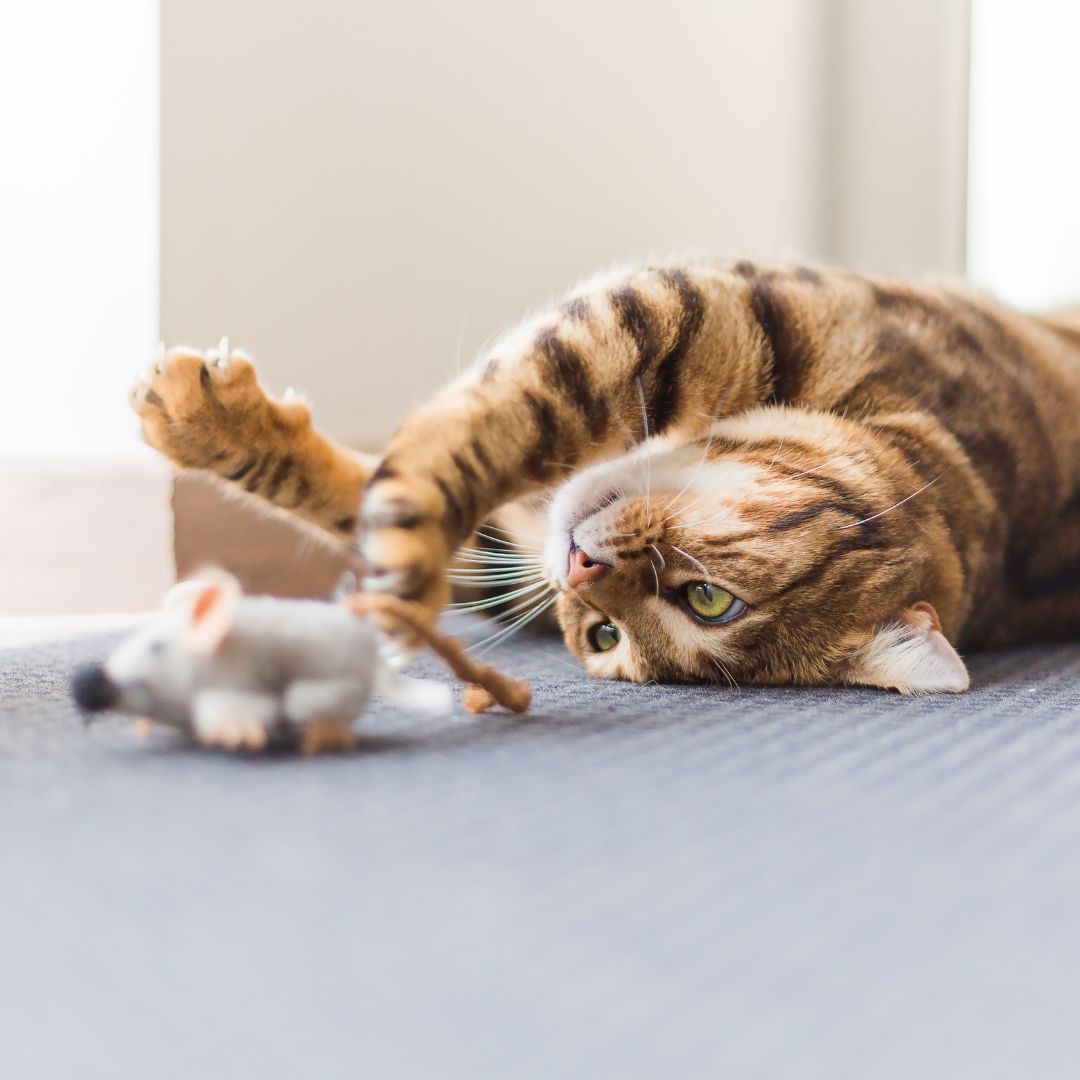A phone call I get quite a lot in my practice is about cats who tear up the house, and/or who won’t settle down at night:
“My cat is ripping my house apart; he freaks out every day while I am at work.”
“My cat won’t let me sleep, she jumps all over me when I go to bed and won’t leave me alone”.
“My cat needs a new home; I can’t deal with his constant meowing”.
The reason for this behavior is usually a very simple one: the cat is home alone all day, then gets ignored at night when his tired family comes home from work. He is bored and full of mischief as a result. He has all this pent-up energy that he never got to use all day, and he has decided to focus it on you, and/or your things.
Why Cats Need to Play
Playtime is an important contributing part to a cat’s mental and physical development. From early ‘kittenhood,’ you will notice that kittens play rough-and-tumble with one another, or with any moving object that catches their eye. It’s during playtime that kittens are honing those fine motor skills, which will aid them in hunting for food later in their lives. (Of course, our housecats don’t need to worry about foraging for food, but it’s simply in their genes).
Another benefit of kitten playtime is building up social skills. They are teaching each other not to bite or scratch too hard during play. Kittens quickly learn that a painful episode ends the game, which is no fun at all for anyone. Hopefully they take this lesson into their playful interactions as adult cats, and with their humans, too.
Playtime also helps your cats to release any stress and curbed energy they may have from being alone all day while you are at work. Cats need play well past kittenhood; they need it daily, and it needs to be fun!
Interactive Play Creates Bonding
Interactive playtime with their feline pals helps cats form a bond with one another. The same is true of their playtime with you. Playtime is the key to reinforcing social bonds with you, as well as other cats. In single-cat households, playing with you is essential to maintaining your cat’s sharp mental state and good behavior. A bored cat will begin to act out, and that is often when someone like me will get a phone call.
It’s a good idea to schedule regular daily playtime. Cats love routine, and your cat will begin to look forward to that special time of day that is just for the two of you. Associating playtime with a mealtime is also good for kitty and imitates their routine in nature. A cat’s natural routine is wake, hunt (play), eat, groom, sleep, and this is done primarily at dusk and dawn. Playtime before bedtime will wear him out so he sleeps through the night and doesn’t wake you up for attention.
How to Channel that Energy
As mentioned above, playtime stimulates the feline hunting drive that cats need in nature to find food, as well as to defend themselves from predators. However, the type of play you engage in with your cat should be well suited to his personality and daily routine.
A shy cat may prefer a simple toy, such as a fishing pole-type with a toy at the end that doesn’t have motion of its own or sound. Draw your cat out with slow, deliberate moves, such as dragging the toy slowly away to trigger their prey drive. Soon you will see your cat slink down low, his little butt wiggling as he gets ready to pounce and catch his prey.
The more outgoing and bold kitties will enjoy toys that are more complex, such as ones with sounds and lights that move in many directions at once. Some cats love chasing toys that simulate the action of a flying bird, so they can leap up into the air to catch it. With this kind of cat you can use more exaggerated motion. But be sure you allow them to capture their prize!
Cats who are alone most of day will also need self-play activities and toys available, and a fellow kitty friend helps alleviate boredom, too. But this is not a substitute for interactive play.
Playtime with other cats in the household, and/or with you, is essential for maintaining good emotional, mental, and physical health. It has been noted that playtime keeps the feline mind sharp and may even ward off kitty dementia in their later years.
LINDA HALL AND RITA REIMERS
The Cat Behavior Alliance


